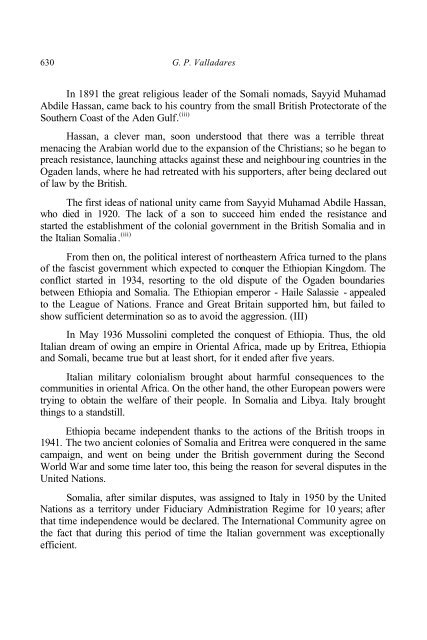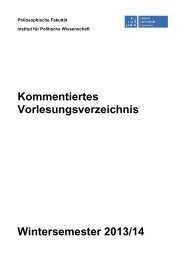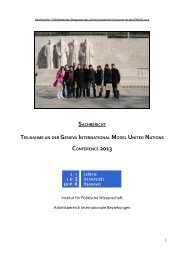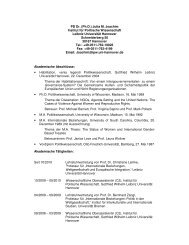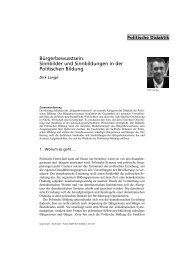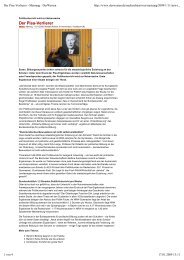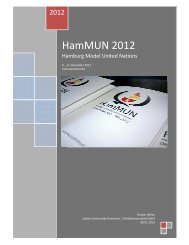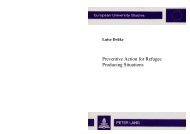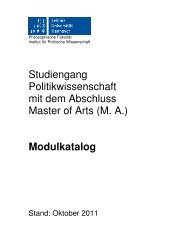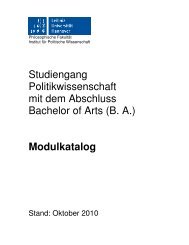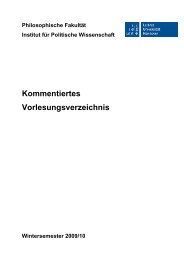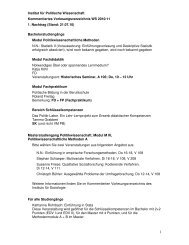SOMALIA HUMANITARIAN INTERVENTION 1992-1993 by G. P. ...
SOMALIA HUMANITARIAN INTERVENTION 1992-1993 by G. P. ...
SOMALIA HUMANITARIAN INTERVENTION 1992-1993 by G. P. ...
You also want an ePaper? Increase the reach of your titles
YUMPU automatically turns print PDFs into web optimized ePapers that Google loves.
630 G. P. Valladares<br />
In 1891 the great religious leader of the Somali nomads, Sayyid Muhamad<br />
Abdile Hassan, came back to his country from the small British Protectorate of the<br />
Southern Coast of the Aden Gulf. (iii)<br />
Hassan, a clever man, soon understood that there was a terrible threat<br />
menacing the Arabian world due to the expansion of the Christians; so he began to<br />
preach resistance, launching attacks against these and neighbour ing countries in the<br />
Ogaden lands, where he had retreated with his supporters, after being declared out<br />
of law <strong>by</strong> the British.<br />
The first ideas of national unity came from Sayyid Muhamad Abdile Hassan,<br />
who died in 1920. The lack of a son to succeed him ended the resistance and<br />
started the establishment of the colonial government in the British Somalia and in<br />
the Italian Somalia. (iii)<br />
From then on, the political interest of northeastern Africa turned to the plans<br />
of the fascist government which expected to conquer the Ethiopian Kingdom. The<br />
conflict started in 1934, resorting to the old dispute of the Ogaden boundaries<br />
between Ethiopia and Somalia. The Ethiopian emperor - Haile Salassie - appealed<br />
to the League of Nations. France and Great Britain supported him, but failed to<br />
show sufficient determination so as to avoid the aggression. (III)<br />
In May 1936 Mussolini completed the conquest of Ethiopia. Thus, the old<br />
Italian dream of owing an empire in Oriental Africa, made up <strong>by</strong> Eritrea, Ethiopia<br />
and Somali, became true but at least short, for it ended after five years.<br />
Italian military colonialism brought about harmful consequences to the<br />
communities in oriental Africa. On the other hand, the other European powers were<br />
trying to obtain the welfare of their people. In Somalia and Li<strong>by</strong>a. Italy brought<br />
things to a standstill.<br />
Ethiopia became independent thanks to the actions of the British troops in<br />
1941. The two ancient colonies of Somalia and Eritrea were conquered in the same<br />
campaign, and went on being under the British government during the Second<br />
World War and some time later too, this being the reason for several disputes in the<br />
United Nations.<br />
Somalia, after similar disputes, was assigned to Italy in 1950 <strong>by</strong> the United<br />
Nations as a territory under Fiduciary Administration Regime for 10 years; after<br />
that time independence would be declared. The International Community agree on<br />
the fact that during this period of time the Italian government was exceptionally<br />
efficient.


